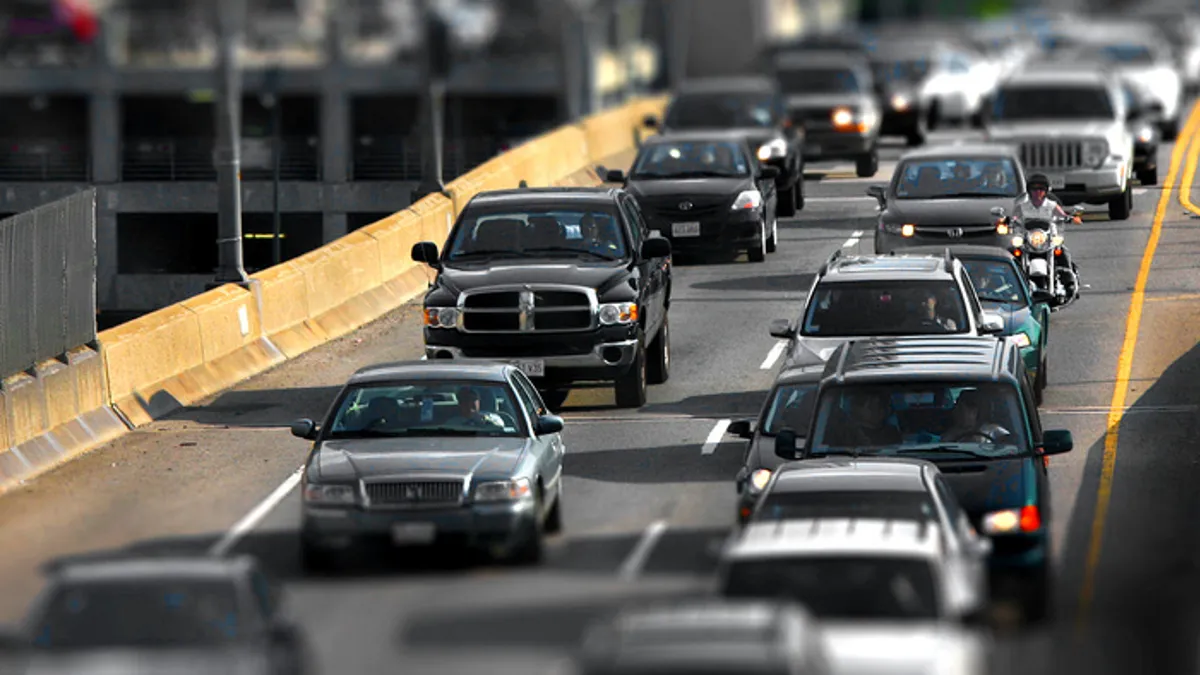Dive Brief:
- U.S. Highway traffic congestion cost the trucking industry $63.4 billion in lost productivity, Overdrive reported, based on 2015 data from the American Transportation Research Institute.
- Congestion costs increased by $13.9 billion compared to that of 2014. GPS data from trucks, along with information shared by the Federal Highway Administration, helped calculate the quantity of delays at roughly 996 million hours, the equivalent of 362,243 truck drivers idled for a year.
- Crashes are thought to be the cause of increased congestion. In 2015, there was a 3.8% increase in police-reported crashes, plus a 7.2% increase in resulting fatalities.
Dive Insight:
In late March, when a heavily traveled I-85 bridge collapsed in Atlanta, traffic was rerouted indefinitely to intersect with the area's outer loop, typically relied on by truck traffic passing through on delivery routes.
While expedient government action led to the bridge's prompt repair and early reopening, the months of detours and delays served as a constant reminder of the nation's infrastructure needs. Small or large, infrastructure in disrepair can ripple effect to cause greater congestion and accidents all throughout. Idle time in traffic, especially for trucks already limited by hours of service regulations, are a chronic source of waste in logistics.
The ATRI report places a price tag on congestion: $63.4 billion in lost productivity. It's nowhere near the $1 trillion minimum mark proposed to repair the issue, but the issue with infrastructure is the longer it takes to repair it, the less capable the road will be to handle increased traffic.
Yet the problem does not end at productivity: The economic impact of congestion also limits business output, and can lead to property losses. The obvious example for property damage is highway truck accidents, but revenue can also be lost due to dwell time or idled traffic.
Take the chemical industry, for example, whose products are 61% carried by truck. Chemical products are extremely sensitive to temperature shifts and often requiring special transportation equipment. As a result, their transportation requires specialized labor. However, as the industry's output rises logistics needs grow, but limited labor — often idled in traffic or at ports — is stifling their ability to export to full capacity. The combined inefficiencies costs the industry $74 billion, according to a recent report.
Ultimately it's a case of one ailment causing another. Because our roads and bridges are in poor condition and are also in need of expansion, bottlenecks and congestion-caused delays will continue, which in turn hurts industry and the economy. Investing in infrastructure, meanwhile, should lead to a leaner economy and facilitate growth.













